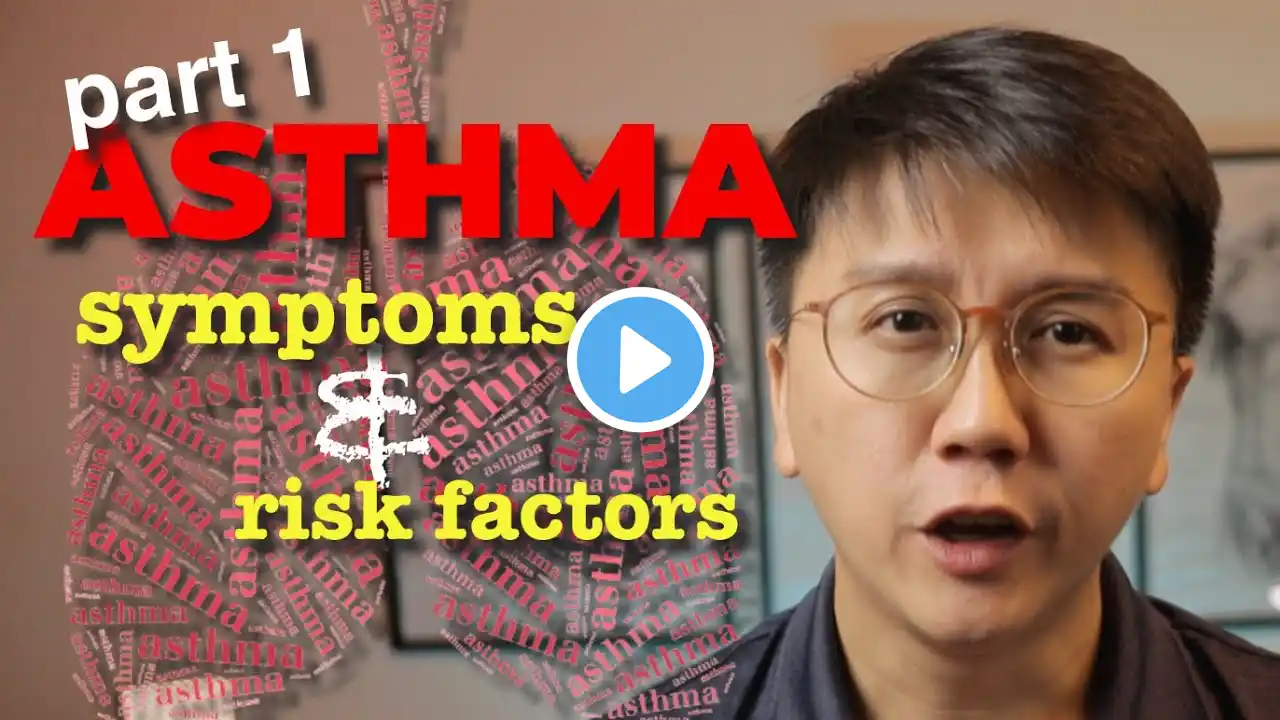
Asthma Explained | Symptoms & Risk factors of Asthma - Part 1/2
I will be sharing more on Asthma in these two video series. Part 1 is about the risk factors of getting asthma, the symptoms to recognize asthma. Visit our clinic website: https://www.vitacare-clinic.com and our facebook @vitacarefamily Visit our health and wellness website: https://fitivate.com and facebook @feelfitivated ---------------------------------------------------------- Welcome back to Sg dr wellness. In this 2 part video, I will be sharing about asthma. Increasingly, I am seeing more and more young children with asthma. And they may not necessarily present with the classical wheezing. So What is asthma? It’s a long term Inflammatory Airway disorder that results in airway tightening, causing difficulty in breathing. This produces the characteristic wheezing sound during asthma attacks It also produces an excessive amount of mucus which makes it even harder for the patient to breathe, resulting in a persistent cough Please remember that asthma is a long-term ongoing issue with periods of good quiescent times interrupted with periods of attacks. The goal of treatment is to minimize the number of attacks and hopefully reduce it to zero. It doesn’t stop at just one episode. So Who gets asthma? Are you able to recognize the signs and symptoms of asthma? What are the triggers of an asthmatic attack? If you are suffering from asthma or if you have children that have asthma - watch till the end to understand more about it. Which type of patients have a higher chance of getting asthma. those with a family history of asthma: if you have a parent who has asthma - you are 3-6 x more likely to develop asthma allergic conditions: if you have allergic conditions like eczema or allergic rhinitis or allergic conjunctivitis, then your chance of getting asthma also increases smoking: smokers have a higher risk of asthma occupational exposure: there are certain types of asthma that may be caused and triggered by occupational exposures like industrial or wood dust, chemical fumes, and vapors. Symptoms of asthma vary from person to person. They may include persistent cough that is prolonged wheezing shortness of breath chest tightness excessive mucus production Characteristically, these symptoms run a prolonged course which may be months to years. And typically, symptoms are more pronounced at night or in the early morning - we describe this as the “ dusk and dawn “ phenomenon. Patients can be perfectly normal when the asthma is “ quiet “ but will suffer when attacks occur. Young children can also suffer from asthma - in fact, it is even harder to get an actual diagnosis of asthma in young patients because they are often unable to go through diagnostic tests called spirometry. Therefore if your child has persistent symptoms that I have mentioned above, please see your nearest family physician or pediatrician for a clinical review and diagnosis for prompt and early treatment. Asthma is diagnosed by your doctor using a combination of characteristic history characteristic findings on physical examination objective tests which may include a chest X-ray and a lung function test Thank you for watching till the end of this video In the second video of this asthma series, I will be sharing more about the triggers of asthma attacks, the treatment of it, and the top 8 tips to prevent asthma attacks. Subscribe, like and share this video if you found it useful. See you next week for part two of the Asthma series. #asthma #asthmariskfactors #asthmasymptoms #SgDrWellness #Vitacarefamily #Fitivate #CSKaesthetics #DrChenYiming #Singaporedoctor #Youtube #Singaporeclinic #Familymedicine #Healthiswealth #preventionisbetterthancure #Singaporeproduction #Singapore



















